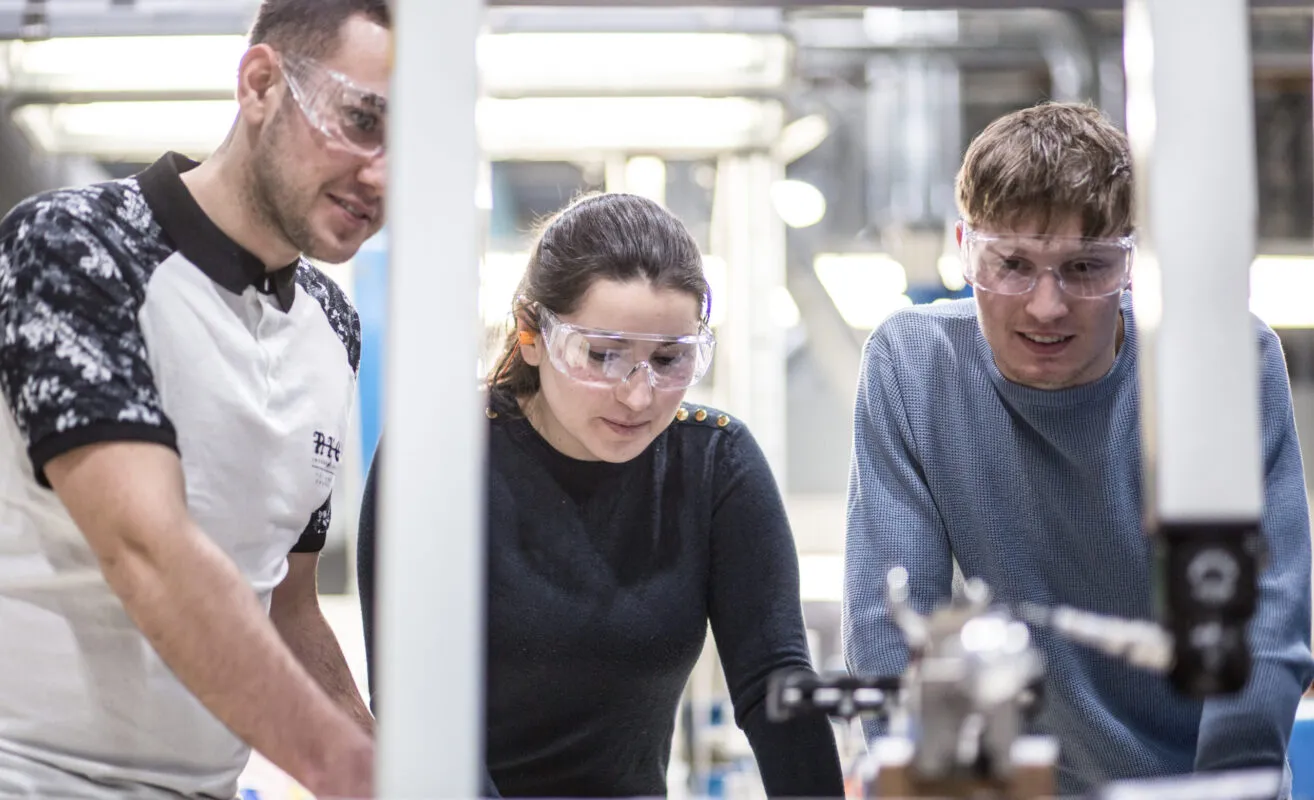Courses
Admissions & Support
Course Search
Courses
Admissions & Support
Course Search
Our Services
Our Community
Course Search
Governance
Professional Services
Location: Moylish, Limerick City / Coonagh, Limerick City
years: 1

The MSc in Product Design Control (Medical Device) is a specialised, industry-aligned postgraduate programme that prepares professionals to lead and contribute effectively to regulated product development environments. Product Design Controls are a structured framework which transforms innovation and technology into safe, effective, and compliant products. They ensure that regulated industries design the right product and consistently make it correctly every time. The programme strongly focuses on EU MDR, FDA 21 CFR Part 820, ISO 13485, ISO 14971, and IEC 62366-1. This programme develops core competencies across the entire product lifecycle from early concept to design transfer and post-market surveillance.
Learners will build proficiency in regulatory and quality requirements, risk management, usability engineering, and structured project management. Through intensive coursework, collaborative case studies, and an applied research dissertation, graduates will emerge capable of designing, verifying, validating, and transferring safe and effective products that meet user needs, intended use, and regulatory expectations. The programme is designed for engineers, scientists, regulatory professionals, and quality leaders aiming to transition into or advance within medical device and other regulated industries (including food, pharmaceuticals, aerospace, automotive, and high-tech manufacturing).
There will be 14 hours of contact time running across 3 days per week.
A minimum honours bachelor degree (Level 8) in any discipline.
Or
A minimum ordinary bachelor degree (Level 7) in any discipline with minimum two years relevant work-based experience and/or ability, evidenced by an RPL portfolio of prior experience and learning
Or
Equivalent Qualifications. Applicants with equivalent qualifications on the European and International frameworks will also be considered. International students must evidence a proficiency in English language for example IELTS 6.5
Product Design Control
Credits: 10
The learner will understand the importance of achieving the user needs and the linkage between each stage of the Design Control process from Design Input, Design History File, Design and Development Planning, Product Risk Management, Human Factors and Usability Engineering, Design Review, Design Output, Design Validation/Verification, Design Change and Design Transfer.
Quality Management
Credits: 10
Draws from International Standards for Quality Management, teachings of the various quality Gurus, National and International Quality Awards, and self-assessment models. Learners will develop skills to become leaders and innovators in the application of Quality principles techniques and develop as quality management professionals in the service and manufacturing industry.
Project Management
Credits: 10
Will introduce formal project management methodologies and the project management environment. Learners’ skills and knowledge will be developed in the tools and techniques documented in the Project Management Body of Knowledge (PMBOK). The module also adopts theoretical and active learning, as the learner will be required to identify and complete an individual industry-based project.
Dissertation (Year-Long Module)
Credits: 30
Focuses on preparing a research proposal and applying the findings from the literature review to the design, testing and execution of an in-depth research study. Focusing on Interpretation, reporting of findings, and formulating justified conclusions that address the research’s original aims and objectives.
Process Design Standards and Regulatory Affairs
Credits: 10
Provide learners with a fundamental understanding of EU and international regulatory systems required during process design. The module will cover the role of regulatory affairs, classification, regulatory structure, and the impact of various regulated industry submission pathways such as medical devices, pharmaceuticals, biopharmaceuticals, and Food manufacturers.
Design Verification and Validation
Credits: 10
Evaluates design verification and validation approaches, models, development, implementation, testing and maintenance of a product. The importance and application of design verification and validation management, reporting and risk management in the product lifecycle will be defined and evaluated.
Product Risk Management
Credits: 10
Gives the learner the ability to estimate and evaluate associated risks, control the risk, verify the control’s effectiveness, and understand each element of risk management. Work within risk management teams in planning, managing, and developing design failure mode analysis, ensuring that safe and effective products are delivered to the customer.
Dissertation (Year-Long Module)
Credits: 30
Focuses on preparing a research proposal and applying the findings from the literature review to the design, testing and execution of an in-depth research study. Focusing on Interpretation, reporting of findings, and formulating justified conclusions that address the research’s original aims and objectives.
This programme will enhance a learner’s career in manufacturing, R&D and regulated companies by developing increasing levels of competence, professionalism, critical thinking, problem-solving and decision-making necessary to work in the regulated industry. This equips graduates to work in regulatory affairs, quality or/and engineering and science environments. There are multiple roles a graduate from the programme can seek in areas such as: Product Design Control, Design Control, Product Risk Management, R&D Engineer, Design Assurance Engineer, Product Manager, Regulatory Engineer, Validation Engineer, Quality Engineers, Quality Control, Quality Management, Regulatory affairs Management, Project Engineer, Product Management and Process Engineer.
Upon successful completion of this programme, graduates have the opportunity to complete Level 9/10 programmes here at TUS or elsewhere.